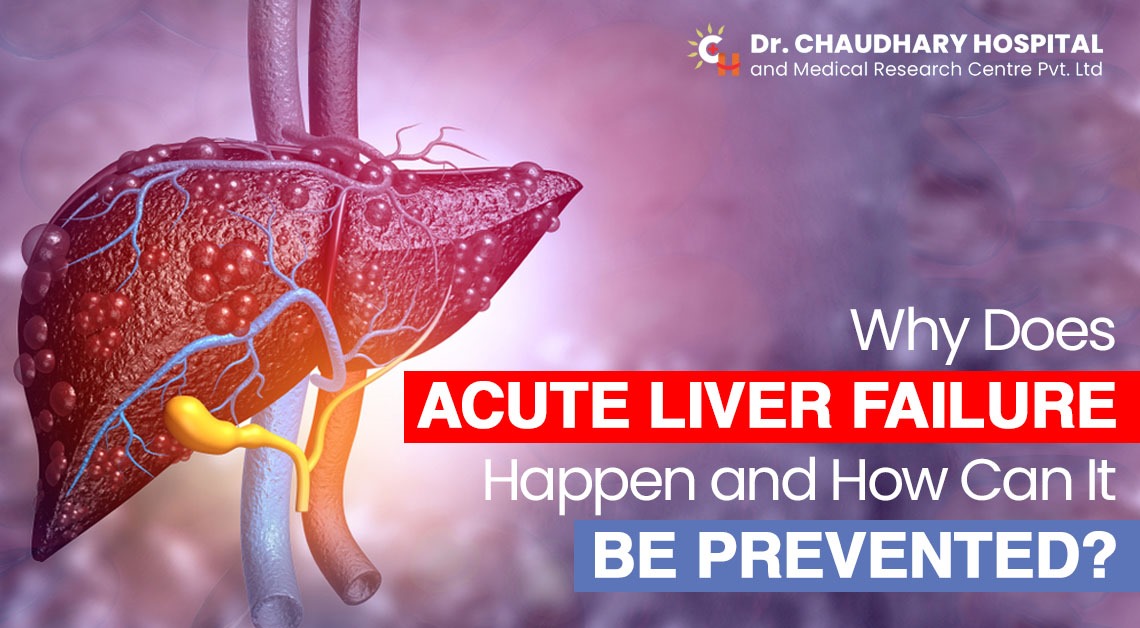The liver is a vital organ responsible for numerous functions in our body, including detoxification, metabolism, and the production of essential proteins. When the liver suddenly loses its ability to function properly, it results in a life-threatening condition known as acute liver failure (ALF). In this blog, we will delve into the causes of acute liver failure and explore ways to prevent it.
Understanding Acute Liver Failure
Acute liver failure is characterized by the rapid deterioration of liver function within a matter of days or weeks. It can occur suddenly, without any pre-existing liver disease, making it a critical medical emergency. There are various reasons behind this catastrophic event, and understanding its causes is crucial for prevention. Autoimmune disease and Wilson’s disease can also be the leading causes of Acute liver failure.
What Are The Common Causes of Acute Liver Failure?
Viral Infections
Viral hepatitis, especially hepatitis A, B, and E, can lead to acute liver failure. These viruses can attack and damage liver cells, causing a sudden decline in liver function.
Drug-Induced Liver Injury
Certain medications can harm the liver when taken in excessive doses or inappropriately. Acetaminophen (paracetamol) overdose is a notable example, as it can quickly lead to acute liver failure.
Excess Alcohol Consumption
Chronic alcohol consumption can gradually damage the liver, but acute liver failure can occur if a heavy drinker suddenly stops or significantly reduces their alcohol intake.
Autoimmune Hepatitis
In some cases, the immune system mistakenly attacks the liver, leading to inflammation and rapid liver failure.
Wilson’s Disease
This rare genetic disorder causes the accumulation of copper in the liver, leading to acute liver failure if left untreated.
Budd-Chiari Syndrome
This condition occurs when the blood flow out of the liver is obstructed, often due to blood clots in the liver’s veins.
Metabolic Disorders
Certain metabolic diseases, such as acute fatty liver of pregnancy, can trigger acute liver failure during pregnancy as a result the child could also suffer from Jaundice right after birth.
What Are The Symptoms of Acute Liver Failure?
Following are the early signs and symptoms of Acute Liver Failure:
- The yellow color of the skin and eyes
- Swollen belly
- Tiredness & fatigue
- Extra drowsy and sleepy
- Nausea
- Pain in the upper right abdomen
- A little unwell feeling
How Can You Prevent Acute Liver Failure?
While acute liver failure can be a dire condition, there are steps you can take to reduce your risk and protect your liver health:
Practice Safe Hygiene
To prevent viral hepatitis (hepatitis A, B, and E), maintain good hygiene pracitices, such as washing your hands thoroughly, avoiding consuming contaminated food and water, and getting vaccinated if recommended.
Use Medications Wisely
Always follow your healthcare provider’s instructions when taking medications. Avoid excessive or prolonged use of over-the-counter pain relievers, especially acetaminophen.
Limit Alcohol Consumption
If you choose to drink alcohol, do so in moderation. For those with a history of alcohol abuse, seek help to quit or reduce alcohol intake under medical supervision.
Get Vaccinated
Vaccination against hepatitis B can significantly reduce the risk of viral hepatitis and subsequent liver damage.
Manage Chronic Liver Conditions
If you have a chronic liver condition, such as hepatitis C or fatty liver disease, work closely with your healthcare provider to manage and treat it effectively.
Monitor Your Diet
Maintain a balanced diet rich in fruits, vegetables, and whole grains. Limit the consumption of processed foods, saturated fats, and sugars, as they can contribute to liver damage.
Stay Physically Active
Regular exercise can help control your weight and improve liver health. Aim for at least 150 minutes of moderate-intensity exercise per week.
Avoid Toxins
Be cautious of exposure to toxins and chemicals that can harm the liver, such as industrial solvents and certain cleaning products.
Practice Safe Sex
To prevent hepatitis B and C transmission, practice safe sex by using barrier methods like condoms.
Seek Early Treatment
If you suspect any liver-related symptoms or have risk factors for acute liver failure, seek medical attention promptly. Early diagnosis and intervention can be life-saving.
Conclusion
Acute liver failure is a critical medical condition that can have severe consequences if left untreated. Understanding its causes and taking steps to prevent it is essential for maintaining good liver health. By practicing safe hygiene, using medications responsibly, and adopting a healthy lifestyle, you can significantly reduce your risk of acute liver failure and enjoy a healthier, happier life. Remember, your liver plays a vital role in your overall well-being, so take care of it, and it will take care of you.


